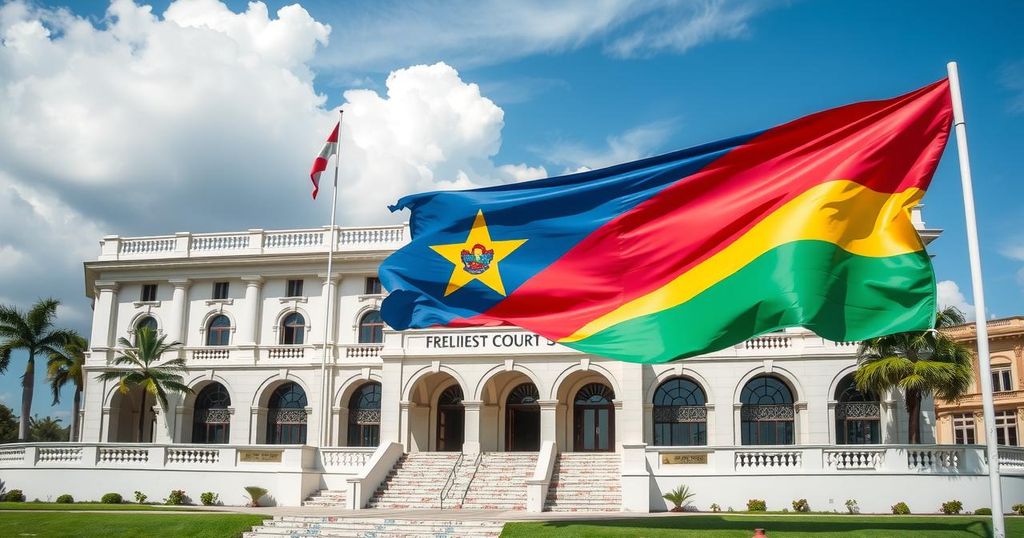World news
2024 ELECTIONS, AFRICA, CONSTITUTIONAL COUNCIL, CORRUPTION, DANIEL CHAPO, DANIEL FRANCISCO CHAPO, DEMOCRACY, ELECTIONS, EUROPE/ASIA, FRELIMO, FRELIMO PARTY, GOVERNANCE, LUCIA RIBEIRO, MAPUTO, MOZAMBIQUE, NATIONAL ELECTION COMMISSION, OF, OPPOSITION, OPTIMIST PARTY FOR THE DEVELOPMENT OF MOZAMBIQUE, REPUBLIC OF MOZAMBIQUE, RIBEIRO, TURKEY
Oliver Grayson
0 Comments
Mozambique’s Constitutional Council Confirms Controversial Election Results, Sparking Ongoing Unrest
Mozambique’s Constitutional Council upheld the election victory of Frelimo Party’s Daniel Chapo amid widespread protests and claims of electoral fraud, leading to over 130 fatalities. Chapo, promising reform, faces continued unrest from opposition supporters who dispute the legitimacy of the electoral results, indicating deep political divisions within the country.
Mozambique’s Constitutional Council has formally confirmed the election victory of the ruling Frelimo Party and its presidential candidate Daniel Chapo, amidst allegations of widespread electoral fraud. Following a prolonged period of turmoil characterized by protests that have resulted in the deaths of over 130 individuals, the council acknowledged certain irregularities but deemed they did not significantly alter the outcome of the elections held on October 9.
In a declaration made by the chairperson of the Constitutional Council, Lucia Ribeiro, it was stated that Daniel Chapo received 65.17% of the votes while opposition leader Venâncio Mondlane acquired 24.29%. Additionally, the ruling party secured a majority in parliament as well as all ten provincial governorships. Despite the formal declaration, protests erupted in the capital of Maputo, with Mondlane’s supporters expressing their dissent through violent demonstrations.
In his acceptance remarks, Chapo expressed a commitment to represent all citizens of Mozambique, not just Frelimo supporters. He acknowledged the need for significant reforms within the electoral system to ensure it caters to the broader populace’s aspirations rather than merely partisan interests.
Human rights activists have criticized the council’s ruling, arguing that the decision will exacerbate the existing tension within the nation instead of fostering unity. Adriano Nuvunga, director of the Center for Democracy and Human Rights, indicated that the council could have been instrumental in unifying the nation at this critical juncture, yet opted not to do so.
As protests continue, with a reported 300 arrests linked to anti-government demonstrations, the political climate remains highly volatile. With all opposition parties rejecting the results, further unrest is anticipated in the weeks to come.
This situation illustrates a profound crisis in democracy in Mozambique, where the ruling government faces increasing pressure from a populace dissatisfied with electoral legitimacy and government repression.
The political landscape of Mozambique has been shaped by the long-standing dominance of the Frelimo Party, which has ruled since independence in 1975. Recent elections held on October 9 were marred by allegations of electoral fraud, leading to significant public unrest and violent protests. Daniel Chapo’s ascent to the presidency, following a controversial election process, highlights ongoing issues of governance and accountability in Mozambique’s democratic framework. The persistent dissent from opposition leaders and human rights organizations underscores a critical moment in the nation’s political history, where perceptions of legitimacy are increasingly challenged.
In conclusion, the affirmation of Daniel Chapo’s election victory by Mozambique’s Constitutional Council against a backdrop of large-scale protests and allegations of fraud reflects a deepening political crisis. The rejection of the electoral outcomes by opposition parties and their supporters indicates a significant rift in public trust towards democratic processes. As the nation grapples with civil unrest, the calls for electoral reform and broader representation signal urgent demands for change in Mozambique’s political governance.
Original Source: www.voanews.com




Post Comment